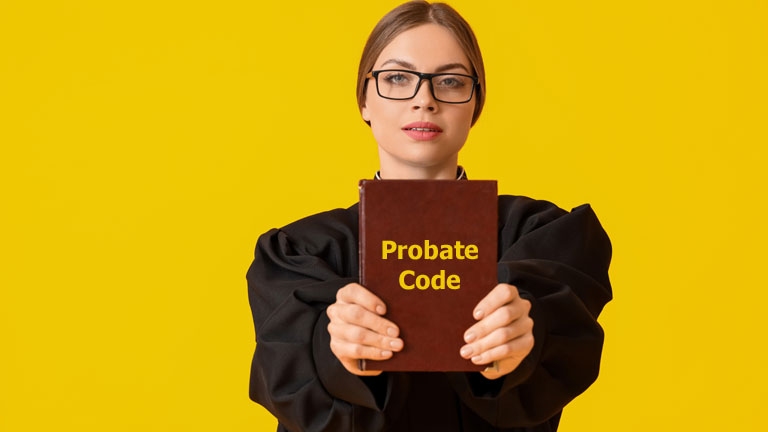
The Probate Code is an essential document for all individuals and companies involved in the legal process of estate administration. It is a detailed code that defines the rules of the process and includes the procedures and taxation related to the process. In this article, we’ll look at the purpose and structure of the Probate Code and explore some of the key elements of this code.
Unsupervised Formal Probate
The unsupervised formal probate code is used when a will or estate is contested. This process is usually faster and less costly than other types of probate. However, it may take longer to settle the estate.
A personal representative will be given the power to administer an estate. They will be able to sell real estate and distribute property according to the last will and testament. Unless the beneficiaries or creditors ask for supervision, the personal representative can make decisions independently.
Before the personal representative can start the process, they will need to submit a commission and attorney’s fees. They will also have to notify all interested parties, beneficiaries, and creditors. These people will then have the opportunity to object to any personal representative’s decisions. Once the court has approved the personal representative, they can begin handling the probate. In addition to the tasks mentioned, they will be required to notify any creditors and designees and secure assets if necessary. After the probate is complete, the personal representative must file an order of discharge. When distributing property, the personal representative can request permission from the court before making any distributions. Unlike informal administration, supervised formal probate requires more court supervision. It is more expensive and takes more time to settle the estate. Supervised formal probate may be the only option if the estate does not have significant assets. Alternatively, it can be a good option if the inheritors agree on how the estate will be divided. Depending on the estate’s circumstances, the personal representative may be required to submit an accounting. In addition, the court may require a physical inspection of the estate’s assets.
Formal Versus Informal Proceedings
During the administration of a decedent’s estate, two types of proceedings are common: informal and formal. Informal and formal proceedings can be used to settle disputes regarding the estate, such as whether a will is valid, who the heirs are, and who should receive the assets. Informal proceedings involve the use of laws and rules based on state-specific requirements. Formal proceedings, on the other hand, are conducted before a court. Typically, a probate attorney can help clients determine the best method. Informal is less costly and requires fewer court interventions than formal. The procedure is also less complicated. However, it is not governed by federal laws. Informal is often more effective for smaller or contested wills or if a will is ambiguous. It is also less expensive to administer an estate through this procedure. Despite its cost-effectiveness, however, it may not be appropriate for all situations. On the other hand, formal procedures are more expensive and take more time to complete. A trial before a judge is required for formal probate. In addition, there is an increased degree of security that comes with this type of proceeding.
Taxes In Probate
Probate code taxes are an important part of the estate administration process. A probate attorney is often necessary to ensure proper taxes are paid. Depending on your circumstances, you may need to sell some of your assets to pay your tax bill. A simple explanation of the probate code just like the California probate code is that it refers to transferring assets from one person to another after a person has died. The process includes several steps. It is a legal process that usually occurs under the supervision of the Superior Court. One of the first things a personal representative must do is to file a petition with the superior court in the county where the deceased lived at the time of his or her death. A hearing follows this. The proceedings are held within 30 days of filing. In addition to collecting assets, the personal representative must apportion the estate’s tax bill among the various interests in the estate. They must also prepare a distribution plan. If the personal representative wants to take advantage of the tax law, they may also request tax reserve funds.
State-By-State Locator
When a person dies, their estate is handled by the state. The process involves opening the estate, appointing a personal representative, and determining the decedent’s heirs. Informal probate may be used if the validity of a will is not in question. However, you should still consult a lawyer before you start a probate. Most states have their own laws regarding the probate of wills. You can find out what the laws are in your state by visiting a state-by-state locator. While at the site, you should also check out the “Estate Code” for that particular state. Each code covers a wide range of topics. These include will formation, probate, and estate administration. The Uniform Probate Code is a set of model legislation that defines inheritance law in the United States. It was drafted by the National Conference of Commissioners on Uniform State Laws (NCCUSL) in order to simplify the probate process. 18 states have adopted the UPC in its entirety. Unlike most states, Texas has adopted portions of the Uniform Probate Code. However, it maintains independent probate codes separate from the UPC. Several of the UPC’s minor provisions vary from jurisdiction to jurisdiction. This means you should check the code in your state before starting probate.




